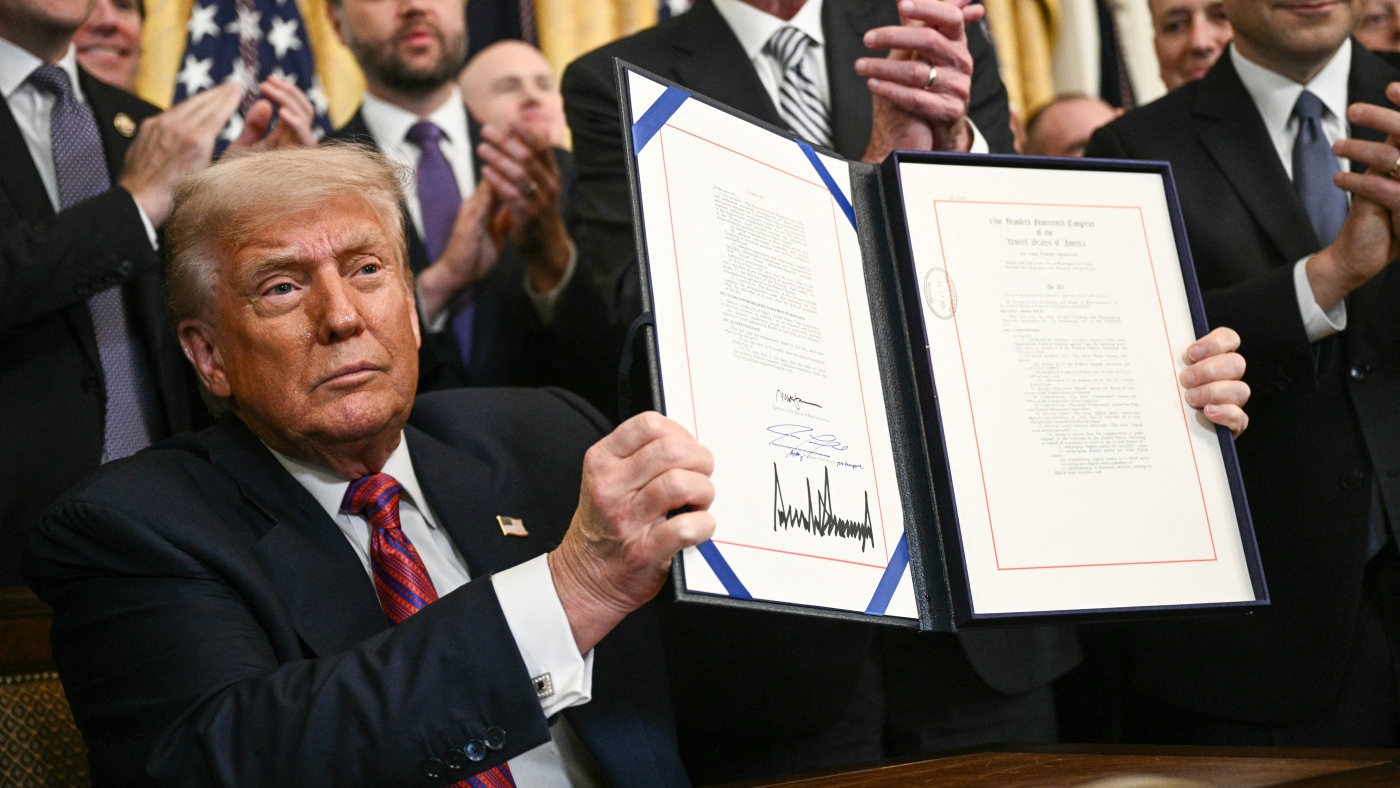Crypto Week Sparks Major Shift in U.S. Digital Currency Landscape

Historic Shift in U.S. Cryptocurrency Regulation: The GENIUS Act Signed into Law
A New Era for Cryptocurrency in America
For years, the U.S. government has maintained a cautious stance towards cryptocurrencies, labeling them as too risky for the average citizen and the broader financial system. However, recent developments indicate a significant change in this approach.
The GENIUS Act: A Landmark Legislation
In a groundbreaking vote, the House of Representatives recently passed the first major cryptocurrency legislation in U.S. history. This pivotal moment marks a turning point in how the nation views digital currencies. Following the vote, the overall market valuation of cryptocurrencies surged to an impressive $4 trillion, reflecting the optimism within the sector.
During a ceremonial signing at the White House, President Trump, who has expressed ambitions to position America as the “crypto capital of the world,” enacted the GENIUS Act to enthusiastic applause from Republican lawmakers.
“This afternoon, we take a giant step to cement American dominance in global finance and crypto technology as we signed the landmark GENIUS Act into law,” Trump stated.
This new legislation introduces regulations specifically targeting stablecoins, a more stable segment of the cryptocurrency market, and lays the groundwork for additional laws that are currently under consideration in Congress.
The CLARITY Act: A Key Focus for Crypto Advocates
Among the various bills being discussed, the CLARITY Act has garnered significant attention from the cryptocurrency community. Passed by the House as part of what has been dubbed “crypto week,” this bill aims to transfer regulatory authority over the crypto sector to the Commodity Futures Trading Commission (CFTC).
This shift could fundamentally alter the regulatory landscape for digital currencies in the U.S., raising concerns among critics who fear it may lead to inadequate oversight of what they consider a volatile financial sector. The bill is now headed to the Senate, where its future remains uncertain, and opponents are prepared to challenge it vigorously.
Advocates See Potential for Financial Innovation
Supporters of cryptocurrency view this week as a momentous occasion. They believe that digital currencies represent the future of finance, despite acknowledging the existence of less reputable segments, such as “meme coins.” Proponents argue that cryptocurrencies can provide genuine value, particularly stablecoins, which are designed to maintain a fixed value by being backed by traditional currencies.
Stablecoins are perceived as a safer alternative in the cryptocurrency landscape, as they are pegged to the value of fiat currencies, allowing for easier conversion and stability. Industry leaders assert that stablecoins could revolutionize global transactions, enabling instantaneous money transfers without the high fees typically associated with banks.
Critics Warn of Potential Risks
Despite the optimism from the crypto sector, critics express serious concerns regarding the GENIUS Act. While the legislation includes some consumer protections, such as requirements for stablecoin companies to maintain adequate reserves and transparency, many believe these measures are insufficient.
Critics argue that the influence of the cryptocurrency industry through lobbying and campaign contributions has weakened the proposed regulations. The crypto sector reportedly invested over $100 million in Congressional races last year and is preparing for even larger expenditures in the upcoming midterms.
Amanda Fischer, policy director for the consumer advocacy group Better Markets, cautioned, “There’s certainly problems in the current payment system, but they are not solved by this bill. In fact, many issues may be exacerbated.”
The Crypto Sector’s Confidence
Despite the pushback, the cryptocurrency industry remains optimistic about its future. With substantial financial resources and the backing of influential figures like President Trump, the sector is poised to continue its advocacy for favorable regulations.
The next significant target for the industry is the CLARITY Act, which seeks to limit the Securities and Exchange Commission’s (SEC) regulatory authority. Under the previous administration, the SEC had taken a hardline approach towards the crypto sector, leading to significant legal actions, including the conviction of former FTX CEO Sam Bankman-Fried.
Crypto advocates argue that digital currencies are innovative financial products that require tailored regulations, rather than being subjected to the same rules as traditional financial institutions.
Mark Hays, associate director for cryptocurrency and financial technology at Americans for Financial Reform, warned, “We’re waging an uncontrolled experiment on our financial system using a technology that hasn’t delivered yet as promised.”
As the crypto industry celebrates the passage of the GENIUS Act, it remains focused on its goals, navigating the complexities of regulation and public perception in a rapidly evolving financial landscape.







